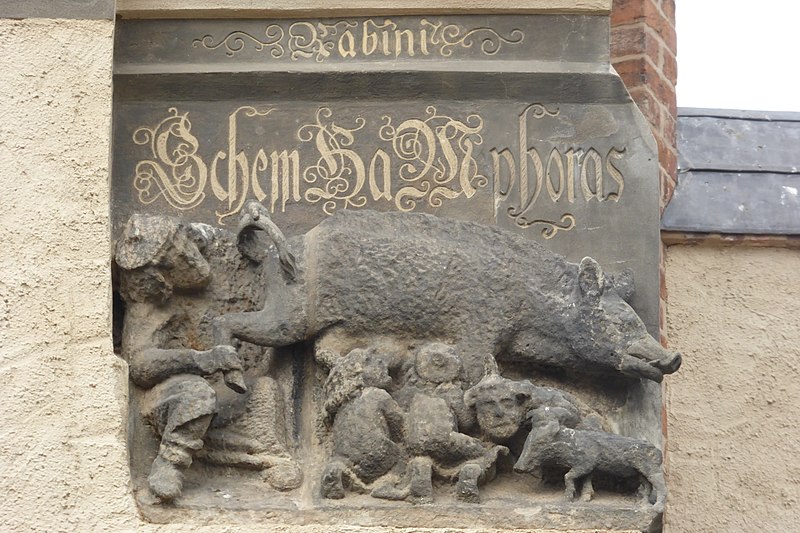The carving shows a group of Jews on their knees eagerly suckling a pig, an animal whose meat is forbidden under Jewish law.
By Ben Cohen, The Algemeiner
A federal appeal court in Germany has ruled against a Jewish activist who sought the removal of an anti-Jewish carving from the 13th century that adorns a church in the historic city of Wittenberg, bringing to a close a legal battle that has been waged for more than four years.
In a decision on Monday, Germany’s Federal Court of Justice upheld earlier rulings in the lower courts to prevent the removal of the offensive statue, known as the “Judensau” (“Jew pig”), from the church where Martin Luther, the fiercely antisemitic 16th century Protestant leader, famously preached.
At least 50 churches in Germany display the same medieval image, with the most well-known example at the 700-year-old church in Wittenberg. The carving shows a group of Jews on their knees eagerly suckling a pig, an animal whose meat is forbidden under Jewish law. It also contains the words “Vom Schem Hamphoras” — an insulting corruption of one of the names for God in the Jewish tradition.
Presiding judge Stephan Seiters told the court that there was no need to remove the Judensau — as demanded by the plaintiff, 79-year-old Michael Düllmann — as in 1988, the church had erected a memorial around the carving that referred to the historic persecution of Jews and the six million Jews murdered during the Nazi Holocaust.
According to Seiters, prior to the addition of the memorial, the carving expressed a “massively defamatory statement about the Jewish people and their religion.” However, the display could now reasonably said to have been converted from a monument to “shame” into a “memorial,” the judge argued.
Following the court’s decision, Germany’s Jewish community voiced concern that the memorial around the Judensau was insufficient. The head of the Central Council of Jews, Josef Schuster, said the court’s decision to allow the statue to stay was understandable but argued that the memorial and sign did not contain “an unequivocal condemnation of the antisemitic sculpture.”
Said Schuster: “Both the Wittenberg parish and the churches as a whole must find a clear and appropriate solution for handling antisemitic sculptures. The defamation of Jews by the churches must belong in the past once and for all.”
Meanwhile, Düllmann vowed to continue with his legal campaign to have the carving removed from the church’s edifice and placed in the nearby Luther House museum. He complained that the German courts had never “really took seriously the propaganda effect, the poisoning effect on society” of the Judensau, adding that he would appeal the decision at the Federal Constitutional Court, the country’s highest.
Prior to Düllmann’s campaign, a 2016 effort to remove the carving also ended in failure. One Jewish activist at the time denounced the Judensau as “unseemly, obscene, insulting, offensive, libelous, and a portrait of hate speech and antisemitism that defames Jewish people and their faith.”


